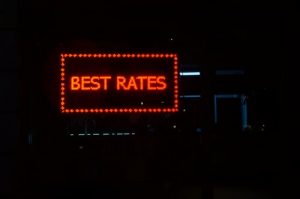A professional home inspection can give you more confidence as a home buyer and make sure you are aware of any issues before you close your new home. A home inspection will help you make a more informed decision about the home you want to buy. A home inspector can identify potential problems and give you a better idea of the ongoing maintenance required for the property.
When you buy a home, a thorough home inspection can save you thousands of dollars in unexpected repairs or accidental purchase of a silver pit.
What is a home inspection?
A home inspection is a visual assessment of the physical structure and mechanical systems of a home, including the roof, ceilings, walls, floors, windows, and doors.
The inspector checks if the main appliances are functional, examine the heating and air conditioning system, the sanitary and electrical systems, and can even rummage in the attic and in the basement.
The purpose of a home inspection is to find out problems with the house itself. Inspectors will not tell you if you are doing good business with the house or if you are giving an opinion on the sale price.
When does the home inspection take place?
The home inspection takes place after the seller accepts your offer, but before the purchase is completed. In order to have enough time for additional inspections or for negotiations with the seller, you should schedule a home inspection as soon as possible once you have a contract. You will need to wait for at least seven to ten days before buying a home to do the inspection.
Hire a building inspector.
As a buyer, it’s up to you to instruct the home inspector. Even if the seller offers to share your home inspection report or claims that the house is pre-inspected, you must organize your own inspection so that you can inspect the inspector yourself. Building inspectors are not regulated by the federal government and are not even licensed in all federal states.
Search for recommendations from friends and colleagues and search the databases of professional associations such as the American Society of Home Inspectors and the International Association of Certified Home Inspectors. These organizations generally require members to pass an exam, adhere to a code of ethics and undergo comprehensive training. Check with your local Better Business Bureau to see if the building inspector has a complaint log there.
It is advisable to ask potential building inspectors for their experience, training, and areas of specialization. For example, if you are planning to repair a house or if you are looking for an older house, you want an inspector who knows historic houses.
Ask for references from previous customers, especially owners who have been at home for at least six months. In this way, you can determine if there have been any problems that were not reported during your inspections. You can also request samples of previous reports and check if these are just completed checklists or in-depth reviews. That way you know if you’re paying for a 10-page stapled report or a three-ring folder with detailed information.
How much does a home inspection cost?
Home inspections are not cheap; They can cost between $400 and $600 or more. So make sure you get what you pay for. You also want to have these resources on hand. Unlike many other closing costs, it usually pays the home inspector at the time of service. Think of it this way: if the building inspector has to wait for graduation to get payment, he is encouraged to make sure graduation goes smoothly. An unscrupulous person could report problems that could affect sales.
What Happens During a Home Inspection?
It takes several hours for a building inspector to make a detailed tour of the house you want to buy. During this time, the inspector will take notes and photos and comment if you follow what you see. Most importantly, the inspector gives an objective opinion on the condition of the house, regardless of the emotional rollercoaster he has taken throughout the process.



